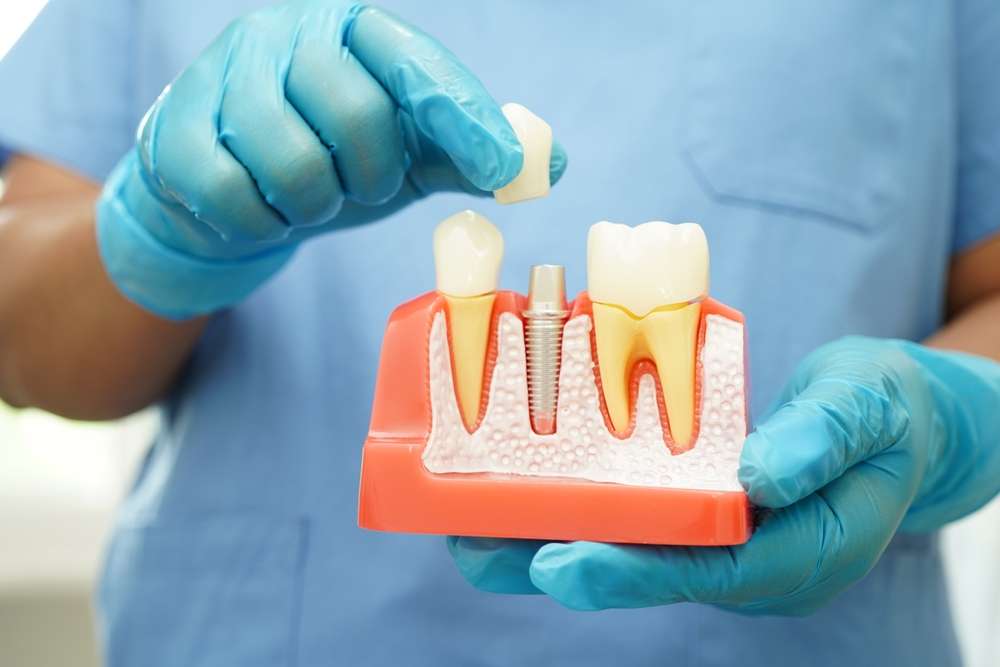Full Mouth Dental Implants Cost Overview in Australia 2025
Considering full mouth dental implants? This guide outlines the expected price ranges, key factors influencing costs, and available payment options in Australia for 2025. Understanding these aspects can help you plan effectively for this comprehensive dental treatment.

Full mouth dental implants offer a permanent solution for individuals who have lost most or all of their teeth. This comprehensive treatment involves surgically placing multiple titanium implants into the jawbone to support a complete set of replacement teeth. The procedure has gained popularity in Australia due to its durability and natural appearance compared to traditional dentures.
Full Mouth Dental Implants Cost Components in Australia
The cost structure for full mouth dental implants includes several key components that contribute to the overall expense. Initial consultation fees typically range from $150 to $300, where dentists assess oral health and create treatment plans. Diagnostic imaging, including CT scans and X-rays, adds another $200 to $500 to the total cost. The surgical placement of implants forms the largest expense, with individual implant costs ranging from $3,000 to $6,000 per implant. Most full mouth reconstructions require 6 to 8 implants per arch, significantly impacting the final price.
Prosthetic components, including custom-made crowns or bridges, contribute substantially to the overall cost. Laboratory fees for creating these prosthetics range from $2,000 to $5,000 per arch. Additional procedures such as bone grafting or sinus lifts may be necessary, adding $1,500 to $4,000 per procedure depending on complexity.
Factors That Influence the Cost of Full Mouth Implants
Several variables affect the final cost of full mouth dental implant treatment in Australia. Geographic location plays a significant role, with metropolitan areas typically charging higher fees than regional centres. The complexity of individual cases influences pricing, as patients requiring extensive bone grafting or additional preparatory procedures face higher costs.
The choice of implant system and prosthetic materials impacts expenses considerably. Premium implant brands and high-quality ceramic materials command higher prices but often provide superior longevity and aesthetics. The dentist’s experience and specialisation also affect pricing, with oral surgeons and prosthodontists typically charging more than general dentists.
Clinic overhead costs, including advanced equipment and facility maintenance, contribute to regional price variations. Some practices offer package deals that may provide cost savings compared to itemised billing for individual procedures.
Financing and Payment Options in 2025 Australia
Recognising the substantial investment required for full mouth dental implants, many Australian dental practices offer various financing solutions. Payment plans allow patients to spread costs over 12 to 60 months, making treatment more accessible. Interest-free periods of 6 to 24 months are commonly available for qualified applicants.
Third-party medical financing companies provide loans specifically for dental procedures, often with competitive interest rates. Some practices partner with these organisations to streamline the application process. Superannuation early release for medical treatments may be available in specific circumstances, though strict eligibility criteria apply.
Credit cards with promotional interest rates offer another financing avenue, though patients should carefully consider long-term interest implications. Some employers provide health spending accounts or flexible benefits that can be applied toward dental implant costs.
Understanding Insurance and Government Support in Australia
Private health insurance coverage for dental implants varies significantly between providers and policy levels. Most basic dental coverage excludes major procedures like implants, while comprehensive policies may provide partial coverage ranging from 20% to 60% of costs. Annual limits and waiting periods often apply, requiring advance planning for treatment.
The Child Dental Benefits Schedule provides limited coverage for children aged 2 to 17, though implants are typically excluded due to age restrictions. Adult public dental services focus primarily on emergency and basic treatments, with implants rarely covered under public health programs.
Veterans’ Affairs may provide dental implant coverage for eligible veterans with specific service-related conditions. Eligibility requirements are strict and require thorough documentation of service-related dental issues.
| Treatment Component | Provider Type | Cost Estimation (AUD) |
|---|---|---|
| Single Implant Placement | General Dentist | $3,000 - $4,500 |
| Single Implant Placement | Specialist | $4,500 - $6,000 |
| Full Arch (6-8 implants) | General Practice | $25,000 - $40,000 |
| Full Arch (6-8 implants) | Specialist Clinic | $35,000 - $55,000 |
| Complete Full Mouth | Budget Clinic | $45,000 - $65,000 |
| Complete Full Mouth | Premium Practice | $65,000 - $90,000 |
Prices, rates, or cost estimates mentioned in this article are based on the latest available information but may change over time. Independent research is advised before making financial decisions.
Suitability and Eligibility Considerations
Not all patients are suitable candidates for full mouth dental implants, and eligibility assessments consider multiple health and anatomical factors. Adequate bone density and volume in the jaw are essential for successful implant integration. Patients with significant bone loss may require extensive grafting procedures, increasing both treatment time and costs.
Overall health status affects treatment eligibility, with conditions like uncontrolled diabetes or active periodontal disease requiring management before implant placement. Smoking significantly impacts healing and success rates, with many practitioners requiring smoking cessation before treatment.
Age considerations include ensuring facial growth is complete in younger patients, while older adults may face additional health screening requirements. Realistic expectations about treatment duration, which typically spans 6 to 12 months, are essential for patient satisfaction.
Full mouth dental implants represent a substantial financial commitment but offer significant long-term benefits for suitable candidates. Understanding all cost components, available financing options, and eligibility requirements helps patients make informed decisions about this life-changing treatment. Consulting with qualified dental professionals provides personalised assessments and accurate cost estimates based on individual circumstances.




